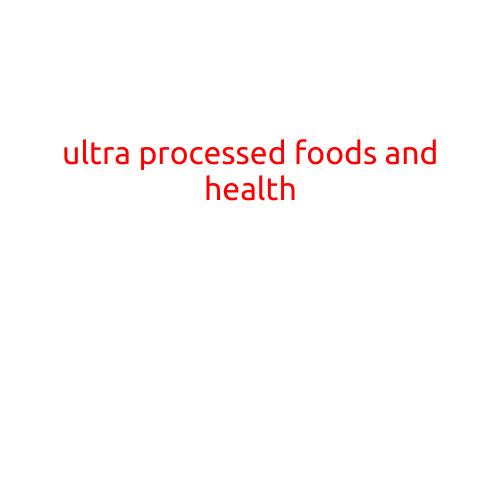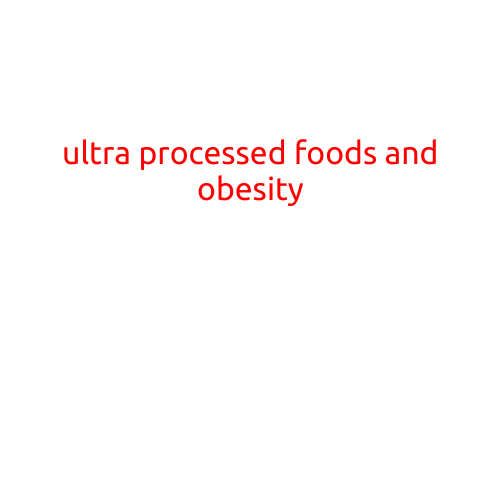
The Dark Side of Convenience: Ultra-Processed Foods and Health
In today’s fast-paced world, it’s no secret that many of us rely on convenience foods to get us through our busy days. From frozen meals to packaged snacks, ultra-processed foods are ubiquitous in our diets. But at what cost?
What are Ultra-Processed Foods?
Ultra-processed foods are defined as products that contain a combination of industrial processes, such as extrusion, injection, and frying, to create a product that is far from its natural state. These foods often contain a long list of additives, preservatives, and artificial flavorings, which are used to extend shelf life, enhance flavor, and improve texture.
Examples of ultra-processed foods include:
- Frozen pizzas
- Packaged snacks (e.g., potato chips, crackers, cookies)
- Energy bars
- Sugary cereals
- Processed meats (e.g., hot dogs, sausages, bacon)
- Baked goods (e.g., croissants, muffins, bread)
The Risks of Ultra-Processed Foods
Studies have linked the regular consumption of ultra-processed foods to a range of negative health outcomes, including:
- Weight Gain and Obesity: Ultra-processed foods are often high in calories, sugar, and unhealthy fats, which can contribute to weight gain and obesity.
- Chronic Diseases: Consuming high amounts of ultra-processed foods has been linked to an increased risk of chronic diseases, such as heart disease, type 2 diabetes, and certain cancers.
- Nutrient Deficiencies: Ultra-processed foods are often stripped of essential nutrients, fiber, and antioxidants, leading to deficiencies and an increased risk of chronic diseases.
- Gut Health Issues: The high levels of processed sugars, salt, and unhealthy fats in ultra-processed foods can disrupt the balance of gut bacteria, leading to digestive issues and an increased risk of inflammation.
- Mental Health Concerns: Some research suggests that a diet heavy in ultra-processed foods may be linked to an increased risk of depression, anxiety, and other mental health disorders.
Why Do We Consume So Many Ultra-Processed Foods?
There are several factors that contribute to our love affair with ultra-processed foods:
- Convenience: Ultra-processed foods are designed to be quick and easy to prepare, making them a tempting option for busy individuals.
- Affordability: Many ultra-processed foods are cheaper than whole, unprocessed foods, making them an attractive option for those on a budget.
- Marketing: The food industry spends billions on marketing and advertising, often targeting children and vulnerable populations with catchy branding and persuasive advertising.
- Lack of Education: Many consumers are unaware of the negative health effects of ultra-processed foods or lack the education and skills to cook and prepare whole foods from scratch.
Tips for Reducing Your Consumption of Ultra-Processed Foods
- Shop the Perimeter of the Grocery Store: Focus on whole, unprocessed foods like produce, meats, and dairy products, which are typically found on the perimeter of the store.
- Cook from Scratch: Try to cook meals from scratch using whole ingredients, which can be more time-consuming but is often healthier and more flavorful.
- Read Labels: Become a label reader! Check the ingredient list and nutrition label to ensure that the foods you’re consuming are whole and unprocessed.
- Plan Ahead: Meal planning and prep can help reduce the temptation to reach for ultra-processed foods when you’re in a rush.
- Support Local and Sustainable Food Systems: By supporting local farmers and sustainable food systems, you can access more whole, unprocessed foods while also promoting a healthier food environment.
Conclusion
While ultra-processed foods may offer convenience, they come at a significant cost to our health and well-being. By understanding the risks associated with these foods and taking steps to reduce our consumption, we can take control of our health and promote a culture of whole, unprocessed foods.





